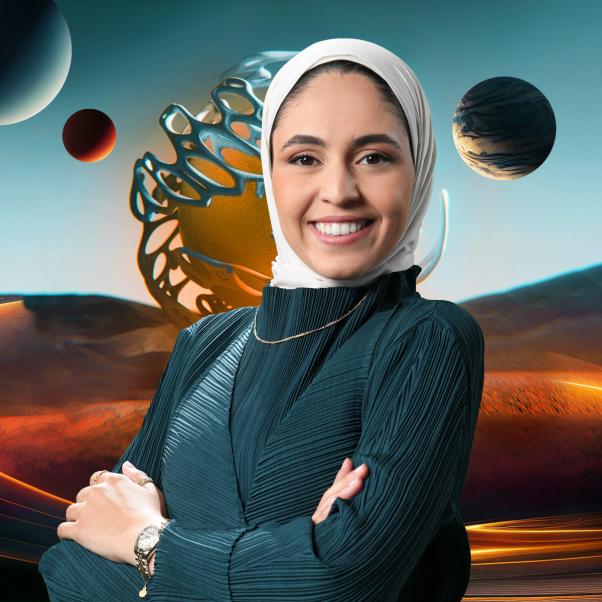Season 16 Innovators
About
Nada Elkharashi stands as a testament to interdisciplinary innovation and design excellence. She laid her foundation in interior design at Virginia Commonwealth University Qatar under a Qatar Foundation Academic Scholarship and further enhanced her expertise by earning an MFA in Interdisciplinary Design, where she also received a graduate fellowship, marking her educational journey as truly distinguished.
Nada’s career is distinguished by numerous accomplishments, including winning the "Young Balkan Designer" award for promoting environments that foster the restoration of human-nature interactions and social connections. She has also secured a third-place finish in Milan's Urban and Public Furniture competition; and has been featured in esteemed publications like Dezeen, Entrepreneur Middle East, Compasses, Scale magazines. Moreover, her team's project "Electric Skin" has gained international recognition, notably being selected for the “Top 100 Innovations” list by COP 28’s Prototype for Humanity program, highlighting the team forward-thinking approach to sustainable energy solutions.
Nada's engagement with Stars of Science, inspired by local familial influences and encounters with the show’s alumni in Qatar, signifies her ambition to leverage the platform's mentorship and feedback opportunities to refine and advance her invention. For her, Stars of Science is a turning point, where, for the first time, she is able to present her invention to a group of mentors who not only grasp the essence of her project but also demonstrate genuine enthusiasm for its success.
About the Project
"Electric Skin" is a leap step for the commercialization of a ground-breaking biomaterial proven in the research labs that autonomously generates micro-energy from air humidity using Geobacter Sulfurreducens, a mud bacterium. By extracting proteins from these bacteria and integrating them with bio-composting materials, this project aims to create a sustainable energy source that could fundamentally transform the Internet of things (Iot) field. The goal is to make devices self-sufficient by eliminating their reliance on external power sources, particularly in environments with limited exposure to sunlight.
The project's immediate focus is on developing a micro-battery capable of powering essential sensors, including wearable health monitors such as those for measuring glucose levels and body temperature. The vision extends to creating a versatile skin patch or sticker, and potentially expanding to developing self-powering panels, representing a significant advancement in how equipment is powered.
Nada's motivation springs from a deeply personal place, catalyzed by witnessing the challenges faced by individuals in regions with unstable electricity supplies. The inception of "Electric Skin" was inspired by innovative research and a response to global crises.
Impact
"Electric Skin" offers a sustainable and bio-compostable solution, diverging from traditional electronic disposal methods. This innovation not only promises to reduce environmental impact but also envisions a future where IoT devices can be powered sustainably, enhancing connectivity and monitoring in settings ranging from modern hospitals to crisis areas.
Nada dreams of transcending traditional power solutions, aiming for a future where "Electric Skin" and similar technologies operate autonomously, ushering in a new era of sustainable energy. Her participation in Stars of Science represents an essential step towards realizing this vision, with plans to expand her startup's reach globally, fostering new collaborations and innovation.
She encourages fellow Arab innovators to embrace interdisciplinary collaboration and venture beyond their comfort zones, highlighting the value of diverse perspectives in achieving groundbreaking solutions.
